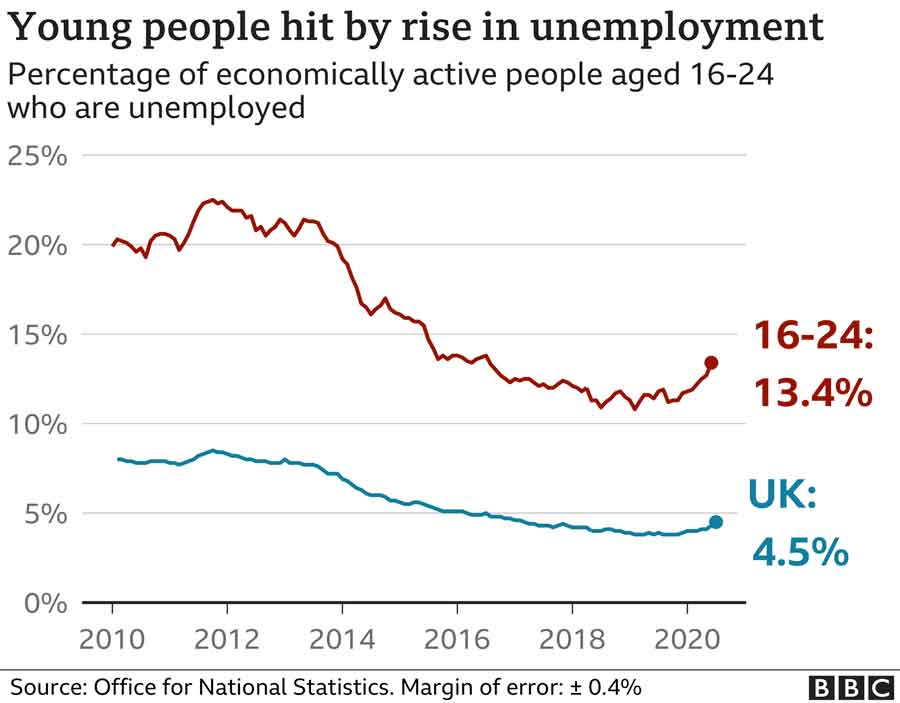

By Jeremy Dewar
MINISTERS ARE slapping each other’s backs at the news that the unemployment rate has fallen to “only” 4.8%—despite this representing 1.64 million workers and their dependents.
Worryingly, nearly half a million of these have been looking for work for over a year. Mass unemployment and the scourge of long-term joblessness have returned.
Unemployment will inevitably rise at the end of September when the end of the furlough scheme throws another 1.9 million workers to the wolves. Various economists have forecast that a further 150,000– 660,000 could end up unemployed.
Young people hit
Even the lower figure would raise the unemployment rate to 5.4%; the higher would mean 2.5 million on the dole—numbers not seen since the 1980s. An LSE university study has revealed that one in 16 businesses say they are at risk of closing; a million jobs are at risk, if the creditors (banks) call time up.
When you add in school leavers who will join the labour market in the autumn and the number of workers who are surviving on part-time and precarious work, the real scale of the crisis begins to emerge.
Minorities and young people have been hit hardest by job losses. Youth unemployment is nearly triple the overall rate at 13.1%, while Black and Asian workers were three times more likely to have lost their jobs in the pandemic.
The jobs that have been lost were overwhelmingly manual, low-paid and insecure. They were largely jobs where working from home was not an option, putting workers at risk of the virus.
Benefits cut
On top of this the government is planning to cut Universal Credit by £20 a week, dropping from £411.51 per month to £324.85, leaving 2.3 million households facing a cliff-edge. With winter on its way and inflation predicted to rise, this is a real killer, forcing many to choose between eating and heating.
It appears to be contradictory that at the same time there are nearly a million job vacancies. While these may provide job opportunities for some, they will be limited. Brexit and 10 years of austerity, slashing skills training and college courses, have caused specific labour shortages that cannot be instantly resolved.
The unions have been predictably ineffectual. The TUC has meekly called for the continuation of furlough—at 80% of full wages—and for Universal Credit to be raised to only four-fifths of the living wage, a clear indication to the Tories that they do not face serious opposition.
Labour’s five-point plan “New Deal for Working People” doesn’t even mention full employment as an aim and has effectively ditched the four-day week, a policy agreed by conference that could help solve the unemployment crisis.
Defend every job
Trade unionists and unemployed activists should demand that the TUC and the unions defend every job, with strikes when necessary, and demand jobs or full pay for all. UC should be set at the living wage and paid in advance. We should support all strikes to defend jobs and conditions and organise demos to draw attention to the forgotten millions on the dole.
We must force Labour to demand jobs for all, a four-day week with no loss of pay and a programme of useful work paid for by taxing the rich and the nationalisation under workers’ control of companies that claim they have to sacrifice jobs for profits.
Most of all we have to organise the unemployed—unless we do, a generation of workers will never come into contact with the labour movement and some will become vulnerable to the racist and misogynistic arguments of the far right. An unemployed workers’ union must be built to organise all those without enough work to fight against their real enemies—the capitalist bosses and their Tory government.